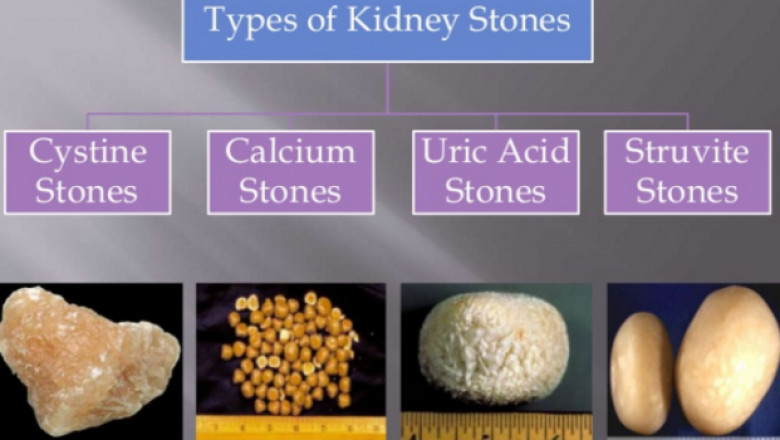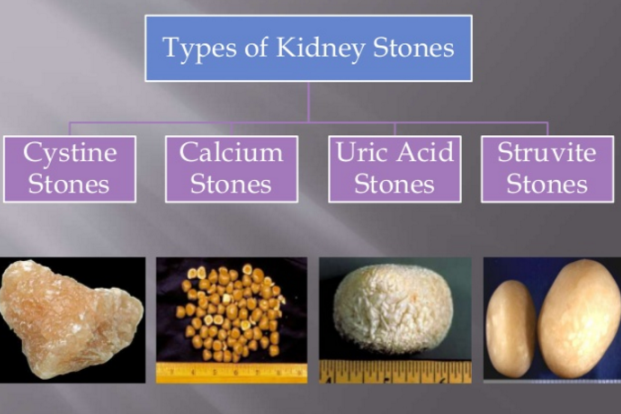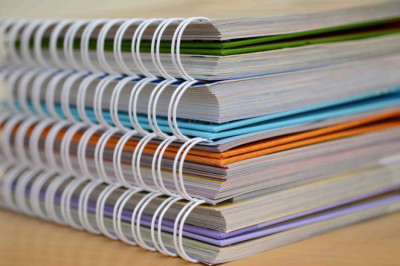views

Kidney stone disease is a prevalent occurrence in the United States, and it is on the rise. A kidney stone can range in size from a few milli-meters to several inches. They are solid masses formed of crystals.
If kidney stones are not treated, they can lead to urinary problems, infections, and kidney damage. Your kidneys filter waste and fluid from your blood to deliver urine. Waste products can collect and clump together in your kidneys if you have too much waste and not enough fluid in your blood. These clumps are accumulated and form kidney stones.
Let’s start with knowing what they are;
What is a Kidney Stone?
Kidney stones are solid objects developed by urine chemicals. They’re hard crystalline deposits of minerals and salts that make up within the kidney or pass through the urinary tract. A kidney stone is an irregularly shaped solid mass or crystal that can range in size from a grain of sand to a golf ball.
You may not even be aware that you have a kidney stone (or stones) considerably in size. Even small stones can be terribly painful as they pass through your urinary system.
What are kidney stones types?

Kidney stones types can be divided into four categories. Here is the list of the same;
- Calcium Oxalate stones
Calcium compounds, particularly calcium oxalate, form the majority of kidney stones. Other minerals, such as calcium phosphate, may also be present. Calcium stones are more likely in people who have issues that cause high calcium levels in the body, such as hyperparathyroidism. Calcium stones are also more likely when oxalate levels are high.
Certain medicines like our calcium oxalate protector supplements are the best medication for calcium oxalate stones.
2. Uric acid stones
Uric acid, a waste material usually passed out of the body in the urine, is used to make kidney stones. This stone can be formed due to;
- Urine output is low
- Excess alcohol consumption
- A diet rich in animal protein
3. Struvite stones
Struvite stones are also known as infection stones because they can develop as a consequence of a urinary tract infection (UTIs). Struvite stones are also identified as staghorn calculi when they are large. Because these stones can cause serious troubles, they require medical attention. Because of their increased risk of urinary tract infections, women are more affected than men.
4. Cystine stones
These kidney stones produced by a chemical called cystine are less common. People whose families have a condition that causes too much cystine in the urine are more likely to develop cystine stones (cystinuria).
What to do if you think you have kidney stones?
The first thing you should do if you think you have kidney stones is to watch the symptoms. There are 6 early symptoms of kidney stones you can check out if you have any.
Another step after you see major symptoms is to get a medical check-up for a kidney stone from the specialist. If you have a kidney stone then passing it would depend more on its size.
The tiny stone can be passed without any surgical treatment with some home remedies. But you have to get medical intervention; if you have a larger one.
Is it painful to pass a kidney stone?
As we have mentioned above, the stages of passing kidney stones can be painful depending on their size. The larger the stone the more painful it could be to pass it.
However, kidney stones can be extremely painful to pass, but if caught early enough, they normally do not cause lasting damage. To pass a kidney stone, you may only require to take pain medication and drink plenty of water, relying on your circumstances.
What to drink if you have kidney stones?
Drinking plenty of fluids, especially plain water and citrus juices like orange or grapefruit, is the ideal home remedy for getting the stone to pass. The extra fluid creates you to urinate more frequently, which aids in the movement of the stone and prevents it from growing. At least 2 to 3 quarts of water per day is recommended.
The Bottom-line
Kidney stones are bothersome at best and torturous at worst. You should be assessed by a healthcare provider as soon as possible to prevent your situation from worsening.
We advise you to take better care of your diet during your kidney stone passing process. It is the most crucial way to deal with kidney stones and get rid of them.
Furthermore, our kidney stones protector supplements can help you inhibit its growth effectively. Visit us for more information!












